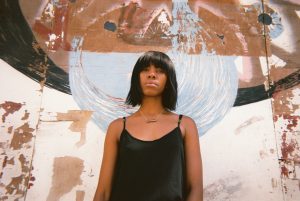“This led me to only focus on how this makes women feel – about themselves, about their bodies, about their spaces in society and about the ways in which they (including myself) are constantly trying to negotiate spaces.â€
In a #metoo world, where the imminent threat of violation and violence reverberates through each pavement-step you take. Whether spaces are brimming, witnessed or vacant – the uninvited, unrequited gaze still leaves a chill. Eyes downcast, breath muttering, slouching smaller, smaller still. Small enough to escape unscathed – this time.
Artist Thakirah Allie has shared in the daily experience of sexual harassment. Her project, Hey Sexy, was born out of “anger and frustration from years of being catcalled and sometimes even gropedâ€when she first moved to Cape Town.“I always wanted to fight back in some sort of way, but I felt too young back then.†After leaving the country and subsequently returning, her perceptions of safety and space had shifted.
One day when leaving a train station in Cape Town,“a guy tried to grab my arm, I pulled back immediately, and he started saying all sorts of things to me. There was a security guard right next to him. He just looked at me and did nothing. This was sort of the last straw for me and in that moment, I came up with an idea to make a documentary about it.â€â€œAt the time, I would also record my own experiences through the audio recorder on my phone. Every time I got catcalled, I would speak into it. This made me feel safe and also allowed me to explore my voice in both a physical and metaphorical level.â€
“I had an idea that catcalling is like a microcosm of rape culture because it is the normalized and somewhat accepted treatment of women in public. Street harassment is something that is universal but women of colour do experience it more. This is not only because we make use of public transport spaces more often but it is also because of the way we have been portrayed and grossly objectified in the greater society. So even though I had all of this lived experience†Thakirah has created an archive and platform of the experience of womxn – both as visual and auditory accounts. What is so striking about these stories is how relatable they are – highlighting this as a systemic issue.
“Often there is a misconception that it is only a certain type of man that catcalls. But this not true. I used myself and started noting every time I got catcalled. It was an array of men. Men in cars. Men in the streets. Working or not. Different races. I was experiencing different types of catcalling from different types of men. Whether I was covered or showing skin, I would still be catcalled. Because I am female, the men felt compelled to say something to me, to stop me, to force me to acknowledge their presence.â€
To counter being violated by the male gaze, womxn often engage in self-editing practices – censoring our clothes, manner, the way we move and take up space. Time and time again these tactics are not effective because on a societal level, harassment is less about desire than it is about power.“ So it’s important for us to have these conversations over and over again until the spaces of healing outweighs the spaces of pain. Until we create safer spaces for people to move around freely in. But also for us to find our own ways of expressing any pain that we may have experienced from being female in this South African landscape. I have seen way too many women who have lost parts of themselves as a result of a man not respecting their space, mind and body. This has affected me deeplyâ€
“I’m going to make my own narratives, in my own way and on my own terms. A shift will happen, I believe that.â€

